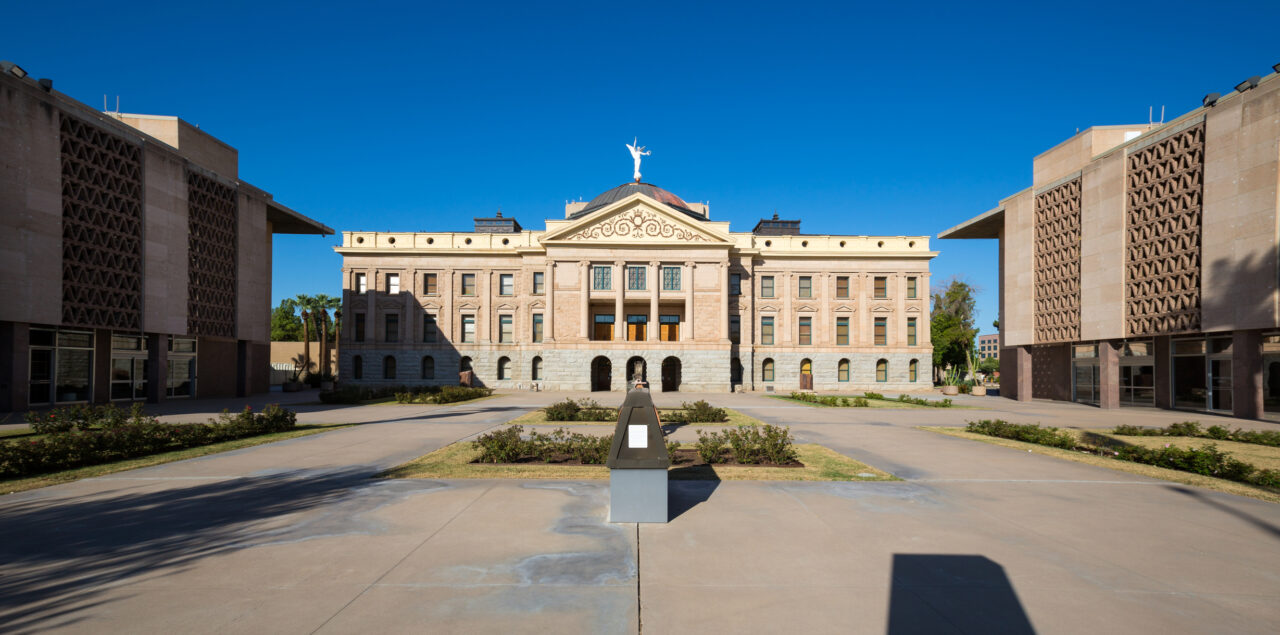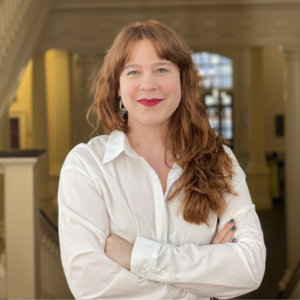Phoenix, AZ, is a modern city making key investments in computer chip manufacturing and electric and autonomous vehicles. The city has ensured its workforce is ready to fill these high-tech jobs by focusing on another industry that may seem unrelated to the digital world: child care. The City of Phoenix recognized that the early childhood workforce ultimately supports the city’s broader workforce by giving workers the ability to hold jobs without the burdens of child care.
Since 2020, Phoenix has worked with NLC on our Cities Supporting the Early Childhood Workforce initiative. This work has been a catalyst for innovative policies and programs aimed at bolstering the well-being and business acumen of the early childhood workforce – both traditional and nontraditonal – across the city.
A pivotal moment in this journey was the recent gathering convened by the National League of Cities with support from the National Association of Counties Research Foundation, where city, county, and community leaders convened to chart a course for the future of early childhood support. This meeting was not just about dialogue; it was about action. It provided a platform for showcasing initiatives, engaging in collaborative learning, and forging partnerships that transcend traditional boundaries. The following meeting components helped set the stage for identifying actionable strategies:
1. Collaboration Between Departments

Central to the discussion was the need to create synergy across departments aimed at aligning existing policies, programs, and practices to support the early childhood workforce. By leveraging the diverse resources within local government, department leads can establish a cohesive support framework encompassing well-being, business support, and the nontraditional workforce. To achieve this, together with NLC, the City of Phoenix team reviewed departmental visions and missions, seeking alignment opportunities with early childhood initiatives. From there, the city worked to foster an open forum for dialogue and resource sharing. Finally, crafting a compelling case is pivotal in garnering commitment and support for these initiatives, ensuring their success and longevity.
For other cities looking to replicate this process, begin by asking:
- What is your local government structure (i.e., council manager, strong mayor, etc.)? How are laws, regulations, and ordinances passed? What is the budget approval process?
- Where is there common ground? Look for intersections between early childhood and municipal priorities.
2. Prioritizing Community Stakeholder Input
Recognizing the invaluable insights offered by community stakeholders, the meeting emphasized a collaborative approach to problem-solving. Elevating the voices of early childhood stakeholders is essential to identifying challenges, sharing best practices, and fostering meaningful partnerships. To achieve this, it was crucial to identify the various community stakeholders involved in the early childhood workforce space and map out their roles in the early childhood workforce space. From there, identifying common ground among these stakeholders laid the groundwork for cohesive collaboration and progress.

For other cities looking to replicate this process, begin by asking:
- Identify local government partners supportive of your agenda and how you can/have you engaged them?
- Who are formal and informal influencers outside of government that are driving the agenda?
- What barriers/challenges have you encountered in support of young children, their families, and the early childhood workforce?
3. Thinking Across Levels of Government:

The City of Phoenix joined forces with regional early childhood champions and leaders from Maricopa County to identify opportunities for deepened collaboration between these entities, maximizing resources and impact aimed at improving outcomes for the early childhood workforce in the process. Understanding the distinct roles of various levels of government and pinpointing areas where collaboration could flourish were key focal points. Moreover, leveraging the influence and expertise of local leadership further bolstered this collaborative endeavor, reinforcing the commitment to comprehensive support for the early childhood workforce.
For other cities looking to replicate this process, begin by asking
- What are the opportunities you can leverage within your city’s governance structure and local leadership in support of young children, their families, and the early childhood workforce?
- Where is there already collaboration between the city and other levels of government? Where are the gaps?
The meeting culminated in a surge of enthusiasm and new ideas aimed at transforming the landscape of support for the early childhood workforce in Phoenix. Below are some strategies that are being utilized as Phoenix continues to elevate this critical workforce:
Interdepartmental Collaboration Redefined: Phoenix is breaking down silos within the government by fostering partnerships between unexpected allies. Departments such as Housing, Innovation, and Neighborhood Services are joining forces to address the unique needs of the early childhood workforce. Moving forward, Phoenix is focused on reinforcing buy-in and cultivating opportunities for engagement among city departments, ensuring sustained commitment to collaborative efforts. The next steps, such as establishing regular connection points to maintain momentum and facilitate ongoing dialogue, as well as prioritizing the sharing of data and resources across departments, lay the foundation for informed decision-making and collective action.
Messaging for Impact: Phoenix understands the power of a unified message. By aligning city departments and community partners around a singular narrative, they are amplifying support for the early childhood workforce and celebrating successes. As a next step, Phoenix is thinking about how to create a shared vision and mission internally, ensuring alignment across departments and, alongside that, crafting a unified outward-facing message that resonates with stakeholders and the broader community.
Expanding Professional Development Opportunities: The city recognizes the unique needs of the early childhood workforce and is considering opportunities such as broadening apprenticeship programs to the county level. Phoenix is committed to continuing to understand the vital role local stakeholders play in supporting the early childhood workforce. This may include breaking down barriers through actions such as establishing shared data and resource platforms to facilitate seamless information exchange. Furthermore, the city aims to actively engage with community stakeholders to assess existing programs, policies, and practices, identifying gaps and opportunities for enhancement to better support the early childhood workforce.
As cities like Phoenix pave the way for equitable support systems for the childcare economy, the importance of local government leadership in supporting the early childhood workforce cannot be overstated. By implementing equitable policies and practices that support caregivers, local governments can ensure their access to resources and recognition necessary for success. This approach fosters an environment where all individuals, including the early childhood workforce, can thrive. This early childhood workforce, whether in formal or informal roles, plays a crucial part in nurturing children’s development, supporting parental employment, and fortifying the workforce.

As a result, local leaders nationwide are embracing investments in these essential caregivers as a central strategy for promoting equity, financial prosperity, and community resilience. By championing collaborative efforts, listening to community stakeholders, and embracing innovative solutions, cities can lay the groundwork for a more resilient, prosperous future for all young children and their families.
Decades in the Making
Learn about Decades in the Making, a new technical assistance initiative called Decades in the Making: Cities Supporting Early Learning and the Child Care Economy. This initiative works with the cities of Boston, MA; Hartford, CT; Jacksonville, FL; and Seattle, WA, who were chosen due to their long-term commitment to and achievement of better health outcomes for their early childhood residents and communities.









